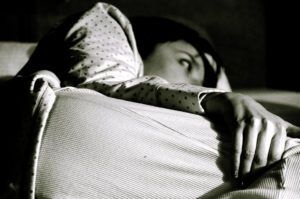Tell me about your sleep...

If you have ever been to see an Acupuncturist or Chinese Herbalist, you know that we always want to know all about your sleep. We want to know if you fall asleep easily or if you spend hours lying in bed worrying before you’re able to drift off to dreamland. We want to know if you can remember that dreamland and if so we want to know how you feel when you’re there and if being there prevents you from feeling rested when you wake up. We want to know if you stay asleep throughout the night and if not, what wakes you. All of this may seem like a bit much when you just came in for knee pain, but it gives us a lot of information about what imbalances might be at play in your unique case, and thus to direct our treatment accordingly. Poor sleep, as it is understood in Eastern as well as Western Medicine, is both a symptom and a cause of illness, and thus always needs to be treated in order to prevent further disease.
The day-to-day manifestations of not getting enough restful sleep amount to not much more than increased physical and mental fatigue as well as higher levels of emotional sensitivity. I know what you’re thinking – this sounds a lot like something an extra cup of coffee (or whatever your preferred energy boost might be) can easily fix most days of the week. Well while that might be somewhat true in the short term, what that cup of coffee, or other stimulant of choice, can’t fix and actually might be contributing to, is that as those sleepless nights stack up, so does the likelihood of developing other major health concerns including psychological disorders, drug and alcohol addiction, diabetes, obesity, cardiovascular disease, even cancer.
The short and long term effects of insomnia can both be attributed to two very important things that happen when we sleep, and that we miss out on when we don’t. Firstly, more growth hormone – commonly known as the “Anti-Aging Hormone”, is secreted while we sleep than during any other time of day, and once released, it triggers a cascade of bio-physiologic events that leads to improved blood sugar regulation, increased conversion of fat to muscle, and cellular regeneration in the liver as well as many other vital organs and tissues (including the ones causing you pain in your knee). Secondly, we have these amazing specialized cells in our brains, glial cells, which go to work as endogenous antioxidants while we sleep in order to eliminate free radicals that would otherwise have toxic effects on the central nervous system.
Together these two things give us scientific evidence of what the ancient Chinese knew long ago. The night belongs to Yin, it is all about entering a time of stillness, relaxation, and restoration, so that when the sun rises we can move into the day, which belongs to Yang, and is all about activity, movement and transformation. Acupuncturists and Chinese Herbalists might ask a lot of questions, but we do so because the answers to them are key in developing effective, holistic and individualized treatment plans that will help encourage within you a more optimal balance of Yin and Yang and thus get you on the path towards ideal health and wellness.




